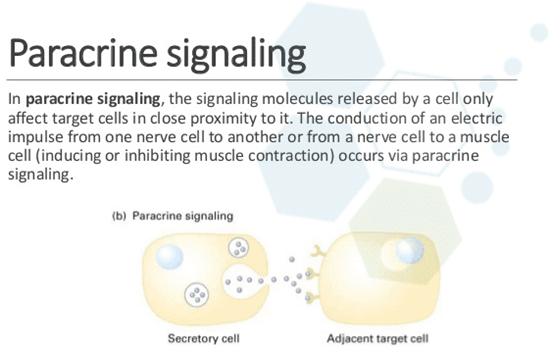Secretions that affect only nearby cells are termed:
Autocrine.
Endocrine.
Exocrine.
Paracrine.
Answer and Rationale
The Correct Answer is D.
Paracrine secretions are chemical signals that affect only nearby cells.

They are released by the sending cell and diffuse through the extracellular space to the target cell, which has a specific receptor for the signal.
Paracrine signaling is a form of local signaling that occurs in multicellular organisms.
Choice A is wrong because autocrine secretions are chemical signals that act on the same cell that produced them.
Autocrine signaling is also a form of local signaling, but it involves cell signaling itself.
Choice B is wrong because endocrine secretions are chemical signals that are secreted into the blood and act at long distances.
Endocrine signaling is a form of long-range signaling that involves ductless glands that secrete hormones.
Choice C is wrong because exocrine secretions are non-hormonal substances that are secreted into ducts to the external environment.
Exocrine signaling is not a form of cell-cell communication, but rather a way of releasing substances such as sweat, saliva, or digestive enzymes.
Acess all questions on ExamGateway's Free Nursing TestBank